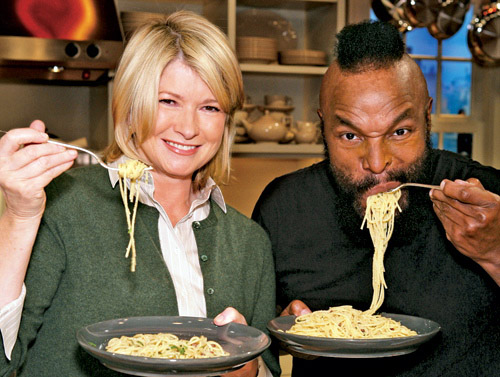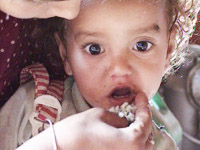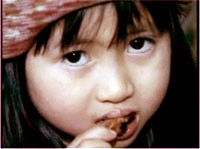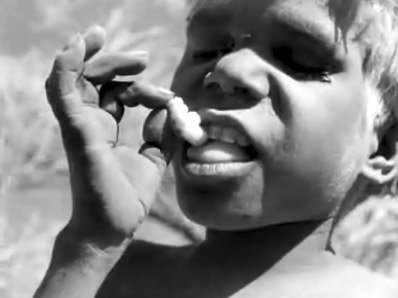Why food?
“Food is required by every human on earth, yet the types of food we eat and how we produce and consume it vary tremendously. It is therefore a nearly perfect subject for anthropology, since it can be examined in terms of human biology, culture, and social status across time from our evolutionary ancestors to the present day....” -- Ryan Adams, IUPUI Anthropology

locavore -- 2007 New Oxford American Dictionary Word of the Year
Conceptual Outline/Topics
(This outline follows the proposed anchor text: The Cultural Feast: An Introduction to Food and Society, 2nd Ed.)
- Food and Culture: Introduction and Orientation
- Basic Human Nutritional Needs and Nutritional Anthropology
- Diet and Human Evolution: Archaeology/Prehistory of Food and Subsistence
- Paleontology and the Diets of Extinct Hominids/Humans
- The Neolithic Revolution: Domestication of Plants and Animals
- “The Omnivore’s Paradox”
- “The Diseases of Civilization”
- Eating as a Cultural Affair
- Food Preferences
- Dietary Restrictions and Taboos
- Ritual Feasts
- Food Technologies: How People Get Their Food in Nonindustrialized Societies
- Hunting/Gathering/Foraging
- Horticulture
- Pastoralism
- Intensive Agriculture
- Contemporary Peasant Societies
- Food Technologies: How People Get Their Food in Industrialized Societies
- Structures of Industrial/Global Production, Distribution and Consumption
- Pre-globalization “Globalization”
- Genetically engineered crops and industrial/factory-farmed animals
- Organic and “Industrial Organic” foods, and sustainable agriculture
- Food security
- Food and Social Organization
- Food as a Means of Solidifying Social Ties
- Food/Cuisines and National, Ethnic, Class and Personal Identities
- Boundary Crossings
- Eating and Ritual
- Eating Ritual
- Ritual Feasting
- Food and Social Status/Food as Social Markers
- Food as a Means of Strengthening Economic and Political Alliances
- Local and Regional foods and food issues
- Local Foods
- Chippewa/Ojibwa/Anishinabe and other Native Americans
- Regional Immigrant Ethnic Foods
- Other America Immigrant Ethnic Foods
- European Union Regulations and Policies
- Worldview, Religion, and Health Beliefs: The Ideological Basis of Food Practices
- Food and Religion
- Food and Traditional Medicine, Health Beliefs and Practices
- Ritual/Non-ritual Fasting
- Food as Pleasure
- Food Linguistic Classification and Communication: Culturally Constructed Categories of Food
- Global Food Issues
- The Current World Food "Crisis"
- Overnutrition
- Manutrition
- Famine
- Development and issues of world hunger
- Feeding the World
- World Health Organization
- Food and Social Change: Dietary Behavioral Change
- The future of food
- Student Presentations on Term Paper Research
Catalogue Description
Advanced survey and comparative study of the relationship between food and culture in the past and present. Topics include the domestication and evolution of plants and animals, biological and cultural aspects of the production, distribution, preparation, and consumption of food, and an analysis of the social and cultural significance of food—including food preferences and taboos, food and religion, food and identity, food and power, gendered division of labor in foodways, beliefs and values about foods, food symbols and metaphors, new food technologies, and the globalization of contemporary food systems.
Course Objectives/Outcomes
- American Anthropology has long emphasized a fourfold approach to the study of the humankind--one embracing physical anthropology, cultural anthropology, archaeology and linguistics--and one regularly doing so with a comparative methodology and explicitly holistic theoretical perspective. It is an aim of the proposed course to demonstrate those interrelating characteristic qualities of the discipline with a foremost topic, the “cultural universal” of food.
- Within this comparative holistic traditional disciplinary framework the course aims to convey a basic understanding of fundamental biological nutritional needs, “derived” needs relating to the production/obtaining, distributing, preparing, consuming, and honoring/celebrating the use of food within a global perspective.
- The course aims to provide a fundamental understanding of subsistence strategies past and present, including domestication and evolution of plants and animals.
- The course aims to provide an understanding of prehistoric and contemporary regional cuisines and subsistence patterns, including those native and immigrant to Minnesota and the Upper Midwest.
- This course aims to familiarize students with comparative categories of food and foodways, and how they are constructed.
- The course aims to impart an understanding of the importance of the social and cultural significance of food--including food preferences and taboos, the relationship between food and religion, and food and identity, and food and power, gendered division of labor in foodways, beliefs and values about foods, food symbols and metaphors, new food technologies, and the globalization of contemporary food systems.
- This course aims to prepare students to think critically about the meanings of what we and others eat and drink, and of what we do not consume.
- This course aims to help students better understand societies of the world through an understanding of their foods and foodways.
- The course aims to understand and reflect on their personal relationship to food chains and food procurement and utilization systems.
- Finally, the course aims to provide some experience and practice at researching, writing about, and publicly presenting results of anthropological inquiry.
|





